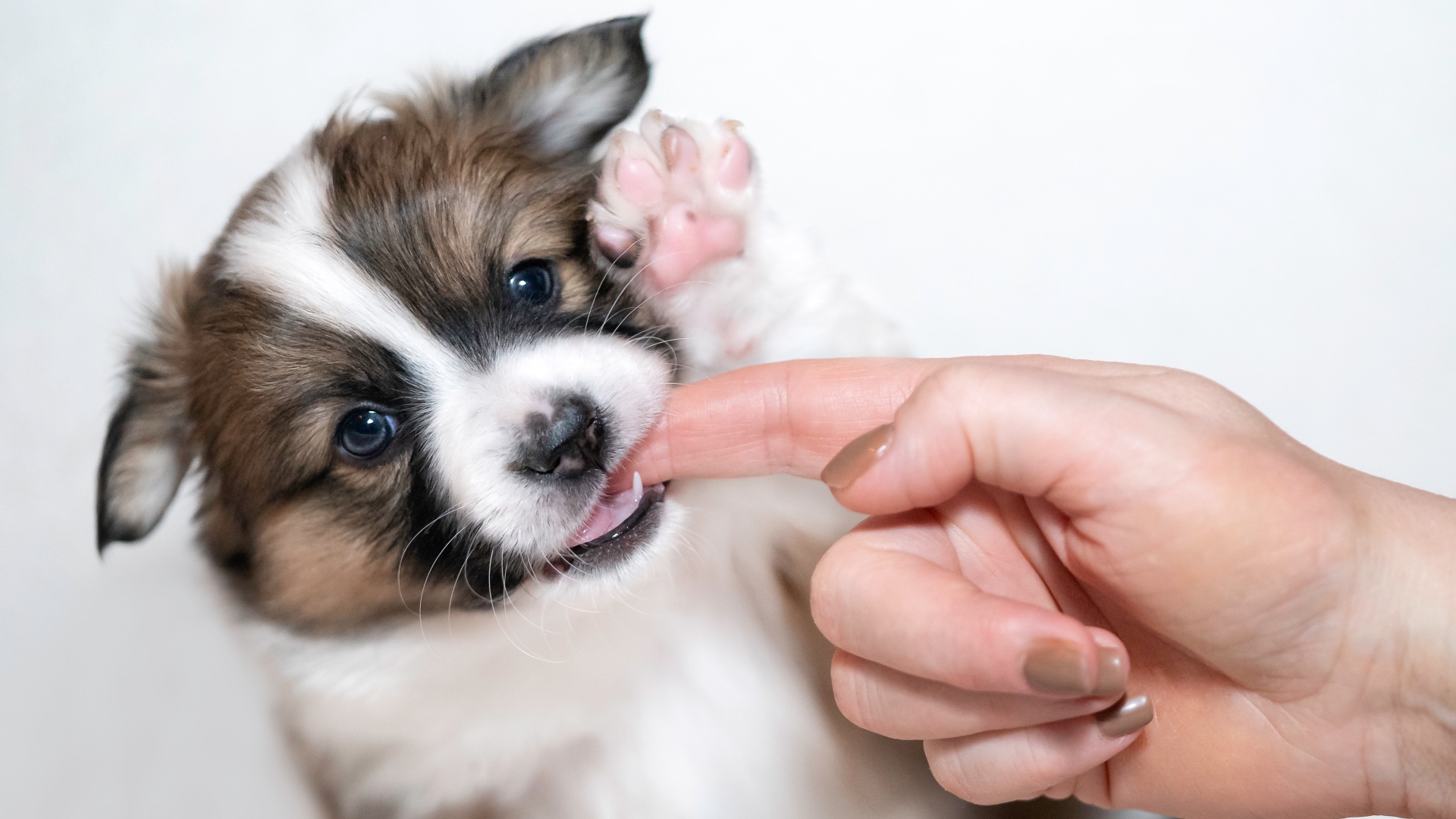Are you making your puppy’s biting worse? Trainer reveals three of the most common mistakes dog owners make
Time, consistency, and avoiding these three mistakes will put a stop to your puppy's biting

Get the best advice, tips and top tech for your beloved Pets
You are now subscribed
Your newsletter sign-up was successful
There are few things more exciting than bringing home a puppy for the first time. But one thing many of us new pet parents are unprepared for is the amount of biting that can go on in that first year of their life.
It's important to remember that while it can be challenging, for most puppies, biting is a very normal behavior that allows them to explore the world around them.
That being said, how to stop a puppy biting is a common question and although there are lots of different ways you can go about this, some methods are more effective than others.
Biting tends to go away with time and consistency, however there are some traps we puppy owners can easily fall into that can make our little fur friend's biting worse.
In a video shared to Instagram, expert trainer Amelia Steele has shared three mistakes she frequently sees pet parents making when it comes to the issue of puppy biting.
Read on to find out what they are and how you can avoid them...
A post shared by Amelia Steele (@ameliathedogtrainer)
A photo posted by on
1. Yelping or squealing when they bite you: While a lot of us may have been told that we should respond with a loud noise when our little fur baby bites us, Steele says this could actually be making your puppy's biting a whole lot worse. "This can be really exciting for a lot of puppies and it can rile them up and cause them to bite you even more," she explains.
Get the best advice, tips and top tech for your beloved Pets
2. Keeping them awake too much in the day: "It's really common that people will try and keep their puppy awake and active so that they sleep better at night," Steele says, "but your puppy can become overtired really easily and they need loads of rest. So if you're keeping them awake too much and you're not giving them enough rest, this can make their biting much worse."
3. Not giving them a way to engage with you as an alternative to the biting: "Puppies bite for lots of reasons and one of those reasons is that they want to engage with us," Steele explains. "If you're not doing any training with them and they're not learning how to work with you, then this can also cause them to want to bite you."
Steering clear of these common mistakes will stand you in good steed when it comes to putting a stop to your puppy's biting behavior.
However, for some puppies, biting may indicate a more serious issue. If you have any concerns, we recommend seeking advice from your vet or a qualified trainer.

Kathryn is a freelance writer who has been a member of the PetsRadar family since it launched in 2020. Highly experienced in her field, she's driven by a desire to provide pet parents with accurate, timely, and informative content that enables them to provide their fur friends with everything they need to thrive.
Kathryn works closely with vets and trainers to ensure all articles offer the most up-to-date information across a range of pet-related fields, from insights into health and behavior issues to tips on products and training.
When she’s not busy crafting the perfect sentence for her features, buying guides and news pieces, she can be found hanging out with her family (which includes one super sassy cat and a kitten), drinking copious amounts of Jasmine tea and reading all the books.
She has written for a range of publications, including Fit&Well, Top Ten Reviews, LiveScience, Goodto, and Product Hunt.
